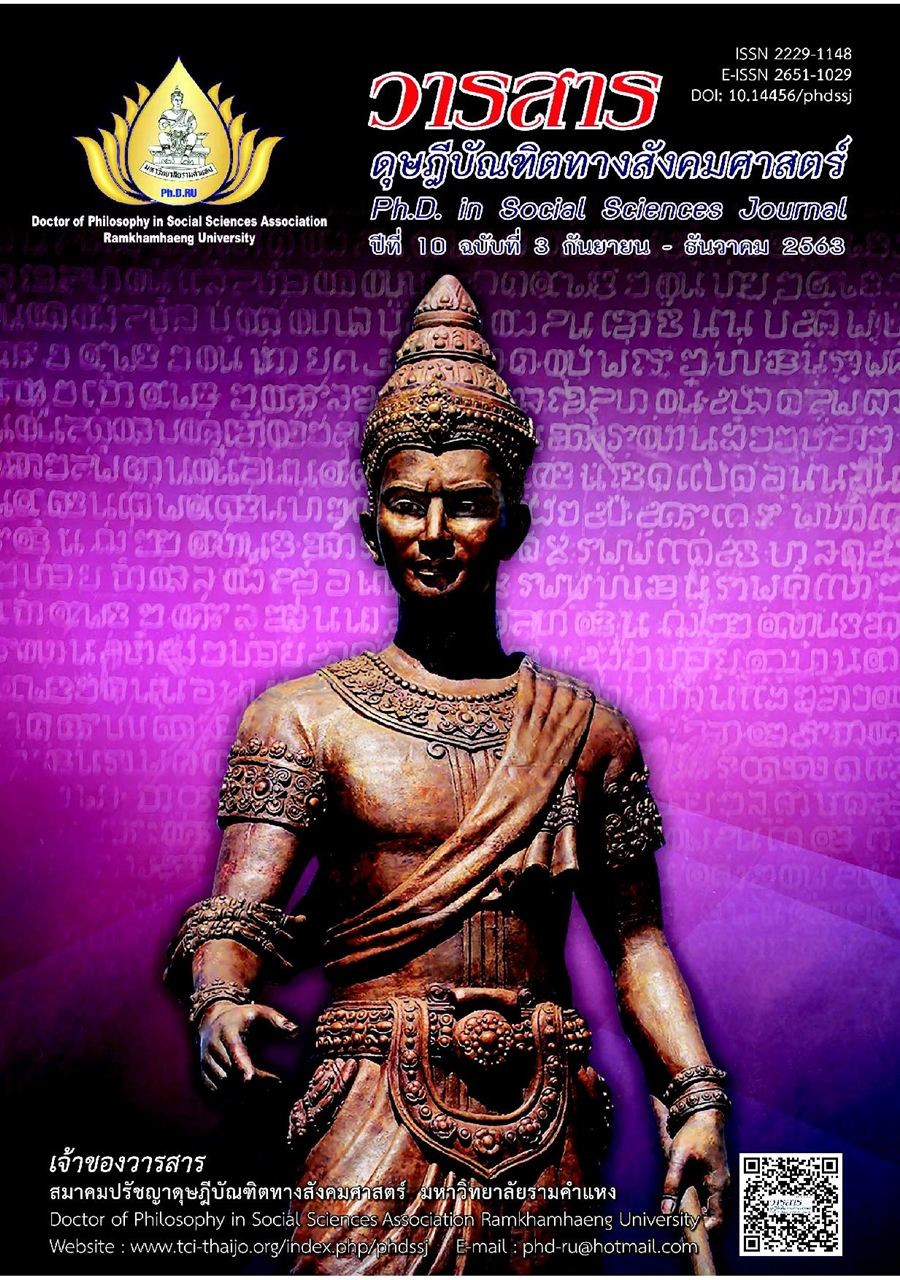The Dynamics of Environmental Movements in Civil Politics
Main Article Content
Abstract
This research article aims to study the commencement and the evolution of environmental movements by reference to participatory democracy and provisions in the Constitutions of B.E. 2540 (1997) and 2550 (2007). The researcher also analyzes the dynamics of these movements in respect to oppositional. The researcher used qualitative research method in collecting data from documents and field research. The field research involved the in-depth interviewing of three groups of informants concerned.
Findings are as follows: The mobilization goals of the environmental movements were to solve problems through the agency of civil society by means of establishing groups or clubs for community members. This provided an arena whereby those engaged in civil politics could demand that public agencies and private businesses solve existing problems. A salient instance was the demand to cease developing projects which have adverse effects on village life and the circumambient environment of community members. Problems stemmed from the fact that reports on the effects of projects on the environment were not transparent. Environmental effect report and public hearings did not afford opportunities of members of the general public to enjoy true participation. When there was no response to their demands, the villagers coordinated with external groups and networks, thereby allowing them to be confident that they were not alone in their struggle.
Article Details
Academic articles, research articles, and book reviews in the Ph.D. in Social Sciences Journal are author’s opinions, and not the publisher’s, and is not the responsibility of the Ph.D. in Social Sciences Journal Philosophy Association, Ramkhamhaeng University. (In the case that research is done on human, the researcher has to be trained in Ethics for Doing Research on Human Training and has to produce the evidence of the training).
References
Buechler, S. M. (1995). New social movement theories. The Sociological Quarterly, 36(3), 441-464.
Castells, M. (1983). The city and the grassroots: A cross-cultural theory of urban social movements. University of California Press.
Castells, M. (1997). The power of identity. Blackwell.
Chinatrakol, R. (2001). Qualitative research. Mittrapap Karnpim and Studio. [In Thai]
Habermas, J. (1981). New social movements. Telos, 49, 33-37.
Jarusombat, S. (2016). Principles and methods of political science (no. 12, 2nd ed.). Sukhothai Thammathirat Open University Press. [In Thai]
Keawkao, J. (2012). Democracy and the protection of community resources. October 14 Foundation. [In Thai]
McCarthy, J. D., & Zald, M. N. (1977). Resource mobilization and social movements: A partial theory. American Journal Sociology, 82(6), 1212-1241.
Olson, M. (1965). The logic of collective action. Harvard University Press.
Patton, M. Q. (1990). Qualitative evaluation and research methods (2nd ed.). Sage.
Piamphongsant, P. (2007). New social movements and cultural crises in the era of post modernity. Political Science Journal, 28(Special), 182-192. [In Thai]
Pintobtang, P. (1998). 99 days of street politics, the assembly of the poor and the history of the demonstrations in Thai society. Krirk University. [In Thai]
Prasertkul, S. (2011). Reform Thailand, reduce the state power, increase the power of the people. Reform Thailand Office. [In Thai]
Thabchumpon, N., & Ditapichai, J. (2002). Movement for the people’s constitution and political reform. In P. Phongphaichit (Ed.), Way of life and how to fight the contemporary people’s movement (pp. 463-508). Trust Win (Silkworm Books). [In Thai]
Sirichan, T. (2002). Review the structure of injustice in the power of the Thaksin government. Siamrath Weekly. April, 16, p. 113. [In Thai]
Snow, D. A., & Trom, D. (2002). The case study and the study of social movements. In B. Klandermans & S. Staggenborg (Eds.), Methods of social movement research (pp. 156-172). University of Minnesota Press.
Sresunt, S. (2002). Civil politics: Guidelines for the exercise of the rights of Thai people. National Development Party. [In Thai]
Thongyou, M. (2014). Concepts of sociological theory in social movements. Khon Kaen University. [In Thai]


